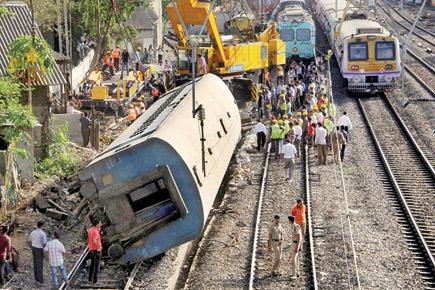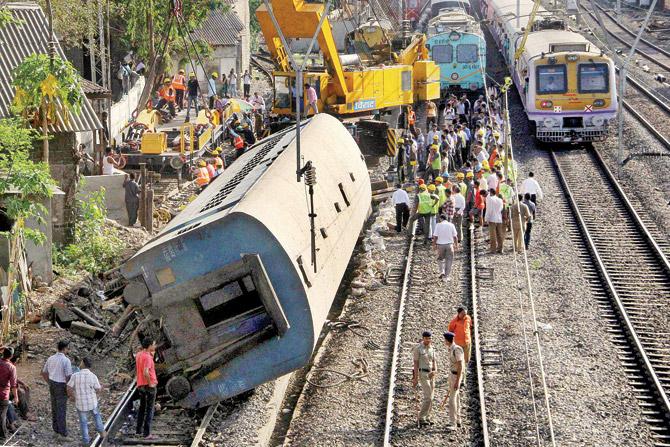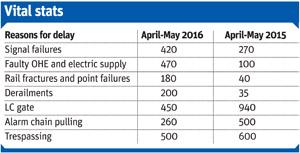A scrutiny of the statistics available with the Western Railway (WR) highlighting causes for delays for April-May reveals that it has struggled to attain punctuality due to technical glitches

For the railways, the devil is literally in the details. A scrutiny of the statistics available with the Western Railway (WR) highlighting causes for delays for April-May reveals that it has struggled to attain punctuality due to technical glitches. Some of the glitches that have inconvenienced the 37 lakh commuters travelling via WR include faulty signalling system, snapping of overhead cables and pantographs and derailments.
ADVERTISEMENT

Some glitches that have inconvenienced the 37 lakh WR commuters include faulty signalling system, snapping of overhead cables and derailments. REPRESENTATION PIC
What makes the problem worse is that the number of services delayed this year has increased by up to four-fold in comparison for the same period (April-May) last year (see box).
Speaking to mid-day, a WR officer said, “These glitches are nothing but maintenance issues. Also, rail fractures, point failures (a point allows trains to crisscross rail lines) and slow speed at crossover points near Goregaon, Andheri and Santacruz add up to the delay.”
Sources added that with monsoon around the corner, repeated signal failure is only going to add to the commuters’ woes. Acknowledging the problem, Ravindra Bhakar, chief PRO, WR, said, “In a city like Mumbai, smallest of the reasons can affect working of signals.”
A senior railway officer claimed General Manager G Agarwal recently held a meeting with the WR signalling team to find a solution to curb delays arising due to system failure. Currently, an engineer visits the site in case of a failure and repairs the system manually to restore services. The officer also blamed slum dwellers adjacent to tracks for rupturing the wires by burning garbage near the signals and stealing cables.
Human errors dip
On the one hand, where the number of delays due to technical glitches is rising, on the other, delays arising from human-induced errors such as trespassing, alarm chain pulling, etc, are plummeting (see box). Citing an example, sources added that this year the number of delays due to trespassing have dropped to 500 in comparison to last year’s 600 cases. They also claimed that non-opening of level crossing (LC) during peak hours is helping railways save anywhere between five to eight minutes. All the LCs have now been closed permanently.
Initially, the LCs were opened to allow people travel from east to west due to limited number of rail over bridges (ROBs).

 Subscribe today by clicking the link and stay updated with the latest news!" Click here!
Subscribe today by clicking the link and stay updated with the latest news!" Click here!






